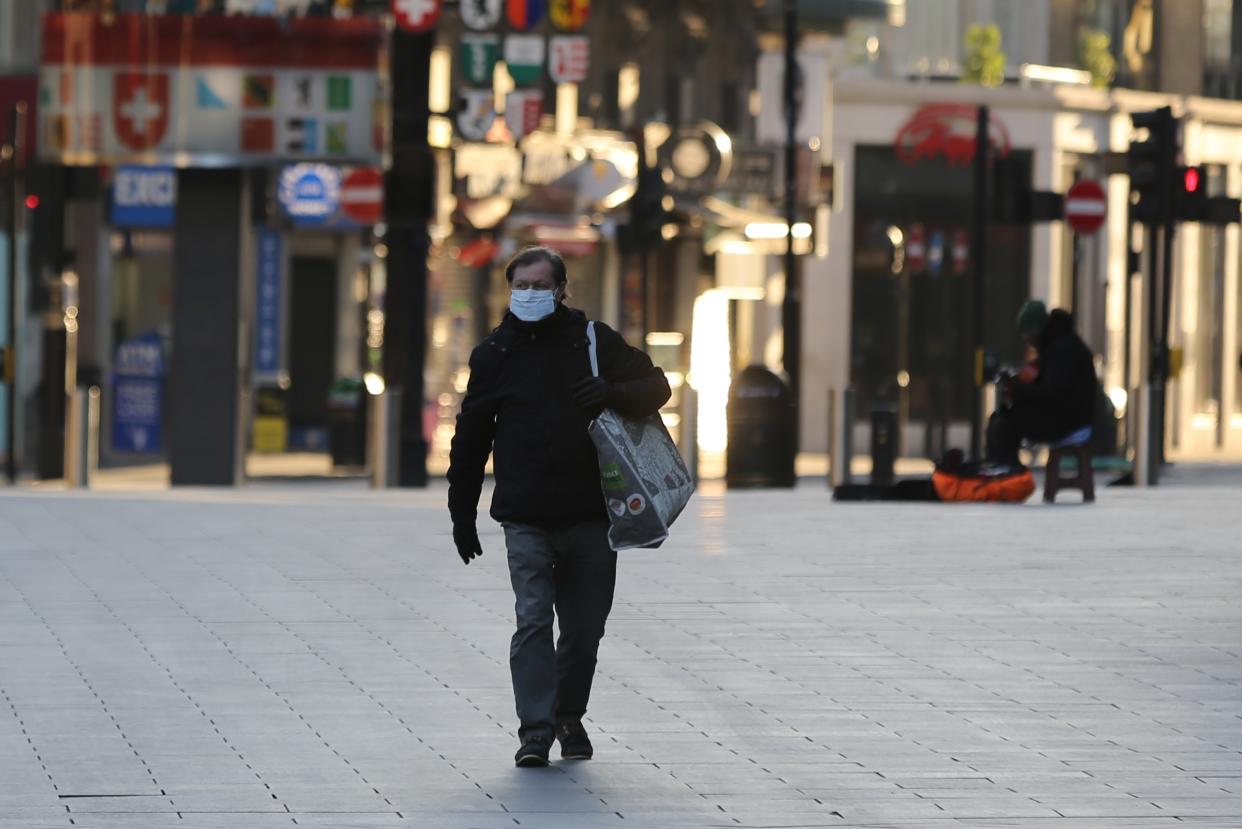Coronavirus: Google could share people's location with the government to enforce social distancing

Google is in discussions to share anonymised location data from phone apps with the UK government, in an effort to enforce social distancing.
A Google spokesperson told New Scientist that it had not yet shared data with Downing Street, but was investigating the idea of a Google Maps-style feature allowing authorities to see busy areas.
Last week, mobile network O2 confirmed that it was providing aggregated data to the government so it could observe trends in people’s movements.
Latest coronavirus news, updates and advice
Live: Follow all the latest updates from the UK and around the world
Fact-checker: The number of COVID-19 cases in your local area
Explained: Symptoms, latest advice and how it compares to the flu
Neither project will be able to track an individual’s movements.
A Google spokesperson said: “We’re exploring ways that aggregated anonymised location information could help in the fight against COVID-19. One example could be helping health authorities determine the impact of social distancing, similar to the way we show popular restaurant times and traffic patterns in Google Maps.
Read more: Coronavirus: Teens arrested for ‘coughing on elderly couple’
“This work would follow our stringent privacy protocols and would not involve sharing data about any individual’s location, movement, or contacts.”
The navigation app CityMapper has provided data showing the percentage of its users that are mobile in many European cities in recent days.
The data has been much discussed as it seems to show Londoners are not complying with official advice to remain home where possible.
We’ve updated our mobility index at https://t.co/Xn9yDsPIfU to include yesterday Sat 21st. We will share more details, analysis and explanation in coming days to address all Qs. pic.twitter.com/nWIzUpFLbD
— C i t y m a p p e r (@Citymapper) March 22, 2020
A Citymapper spokesperson told New Scientist that the company would help the government where possible.
The spokesperson said: “We have received requests from the UK government to help and will do our best. We protect the privacy of our users and are sharing aggregated analysis.”
Read more: British volunteers to be infected with coronavirus
Instagram recently cracked down on augmented reality filters that peddle false claims to diagnose or cure coronavirus.
The company said that it had removed AR effects related to the virus and would reject requests for filters that claimed to “predict, diagnose, treat, or cure coronavirus”.
Some filters previously offered quizzes on whether users have the virus.
The Verge reported that Instagram had banned searches for COVID-19, the disease caused by the coronavirus.
Instagram directs people to reputable information about the virus when they search related terms.
The social network also blocks and restricts hashtags that spread misinformation.

 Yahoo News
Yahoo News 


